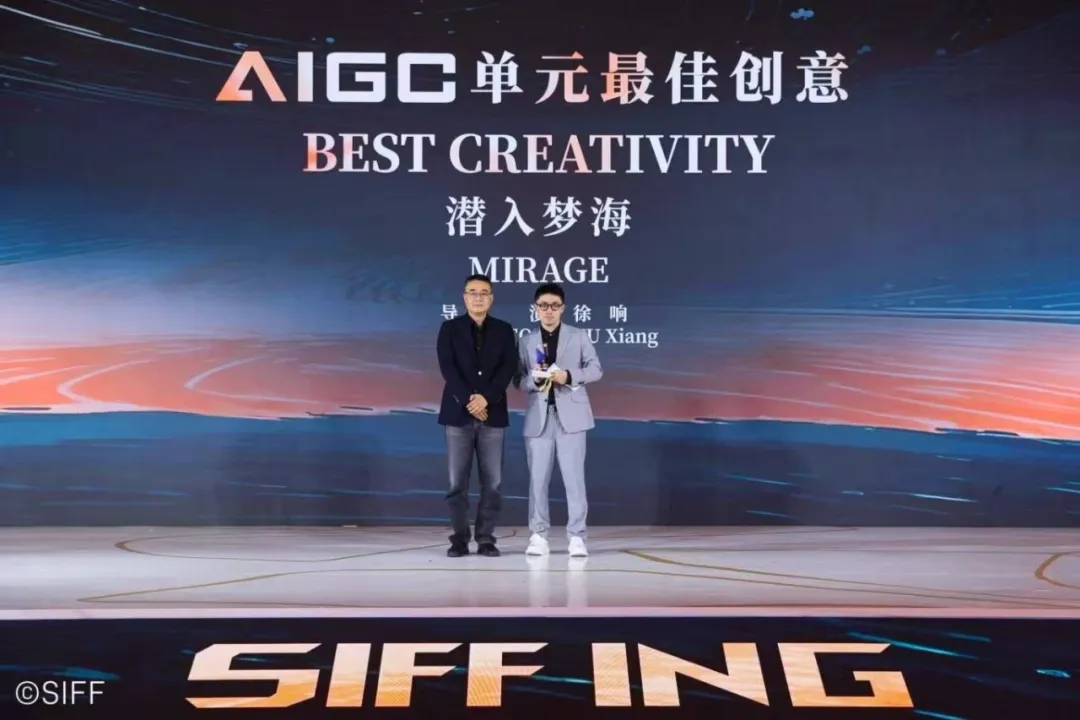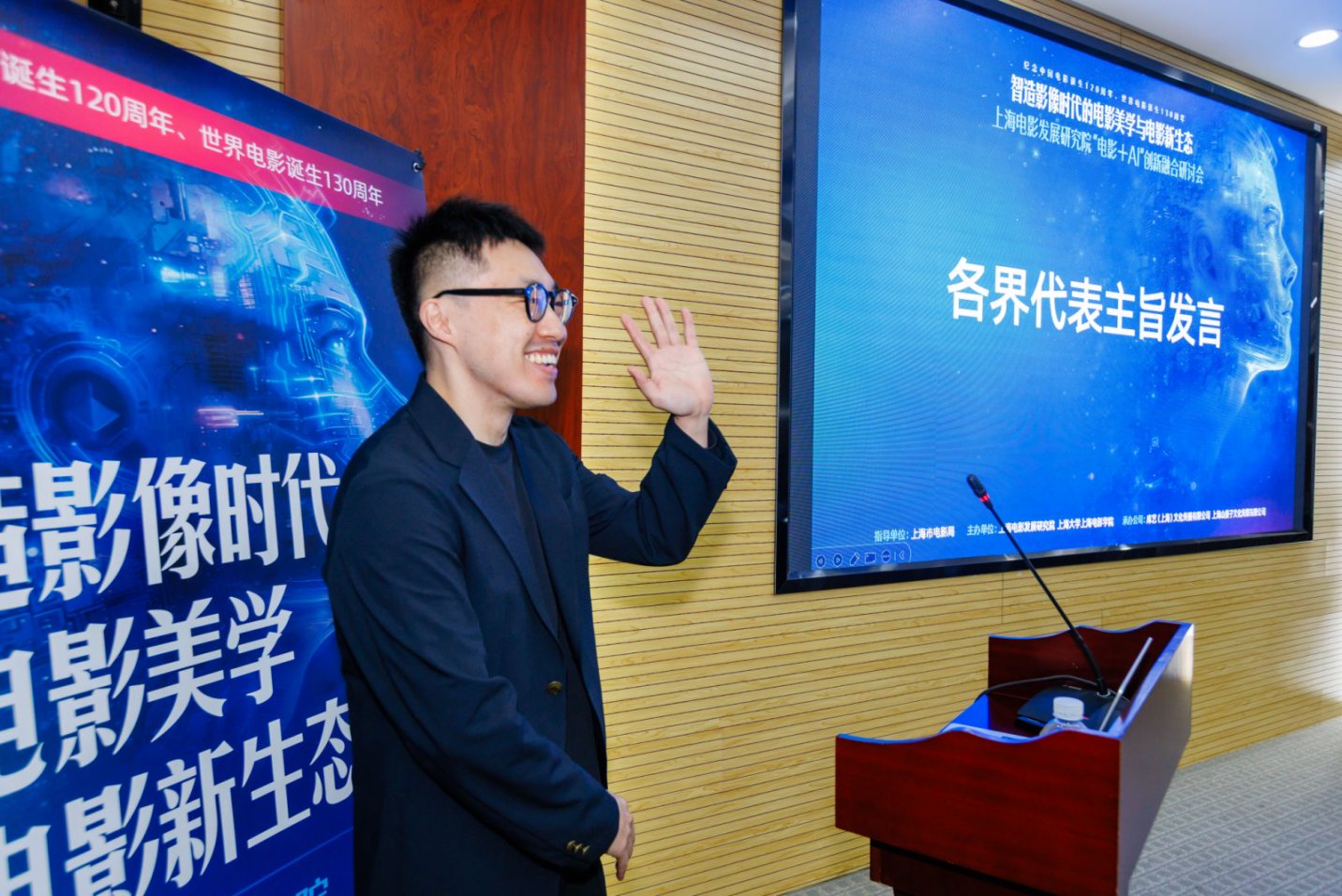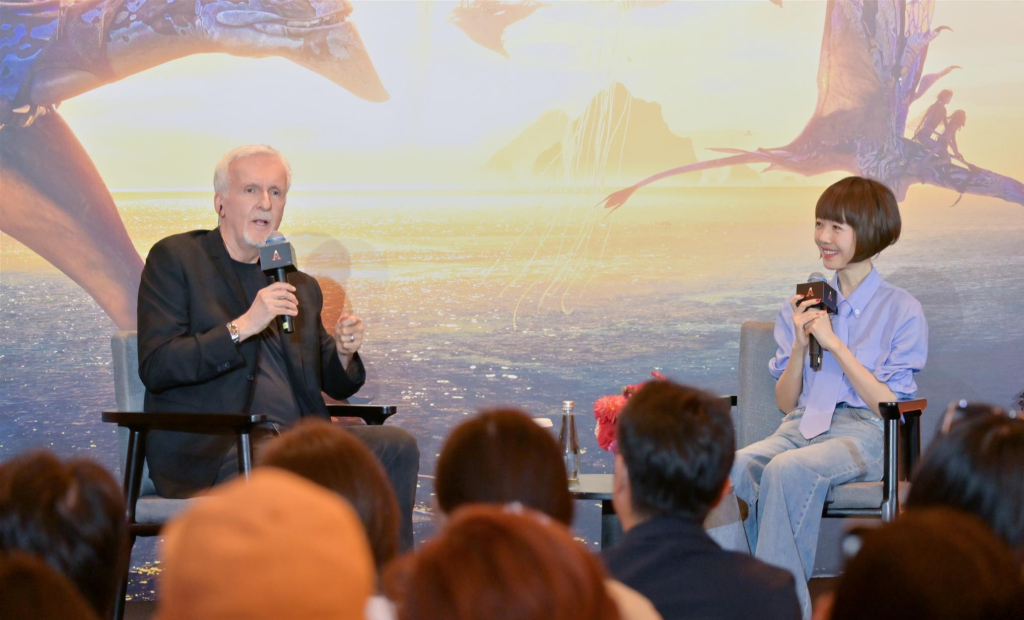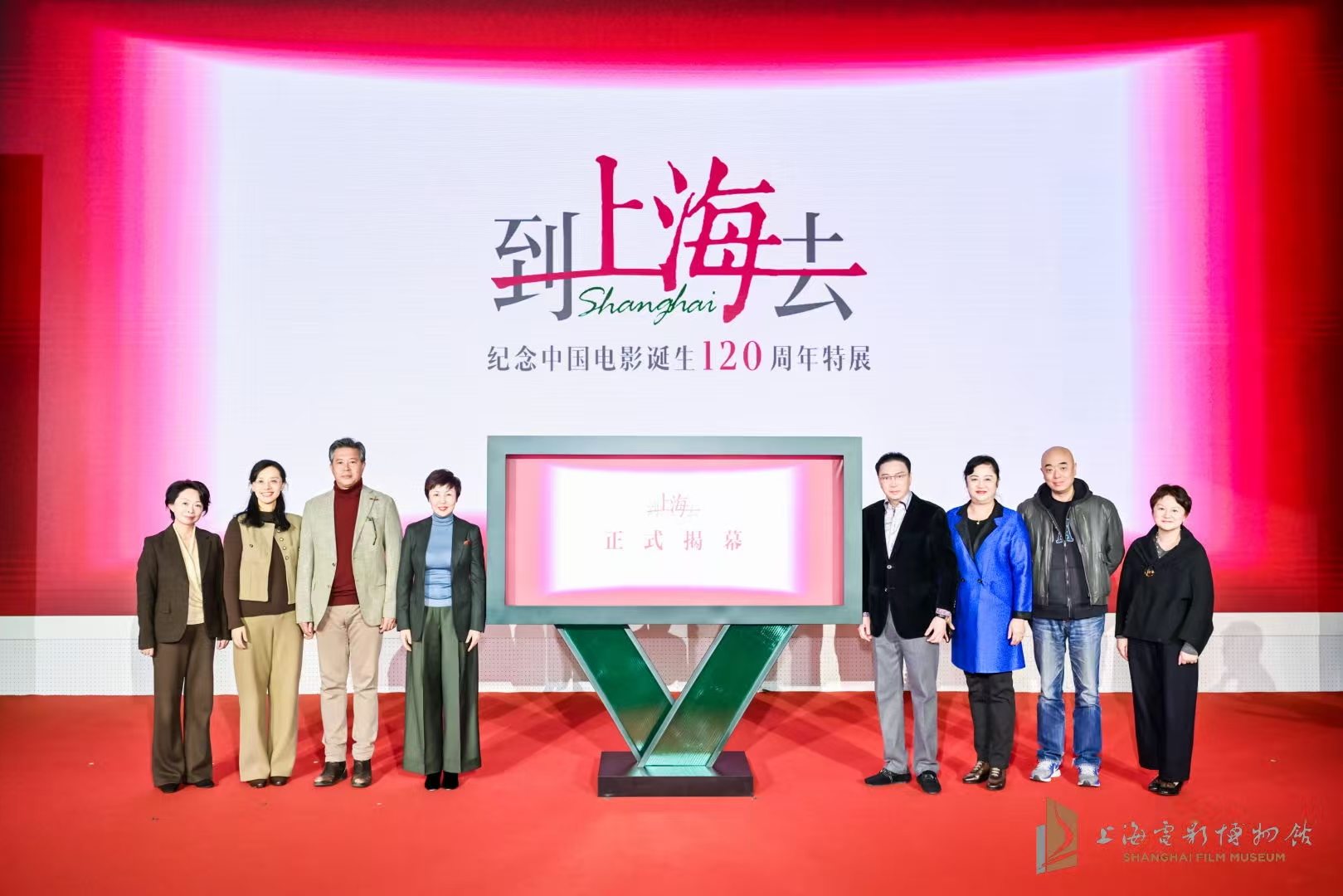
A storyboard that would normally take three days to draw was generated by AI in just ten minutes; a million-dollar explosion scene could be made to look like a theatrical production without any actual filming... It has only been a little over a year since Sora released its first AI video that amazed the world, and artificial intelligence technology has already penetrated the entire film industry chain: from intelligent script generation and virtual character creation to intelligent editing, sound design, and even precision marketing and personalized recommendations, AI is reshaping the traditional film production methods, aesthetic expression, and industrial ecosystem.

2025 marks the 130th anniversary of the birth of world cinema and the 120th anniversary of the birth of Chinese cinema. As the birthplace and innovation hub of Chinese cinema, Shanghai bears the important historical mission of promoting the high-quality development of Chinese cinema and building a global film and television production center. Against this backdrop, the Shanghai Film Development Research Institute hosted the "Shanghai Film City AI Film Day" event on November 7th, and held a screening of film works created by young directors using AI tools on November 9th.

AI Film Day Seminar
How to maintain humanity's "authorship" in the AI era?
At the screening event on November 9th, several AI-generated "films" were shown, covering a variety of genres including science fiction, espionage, romance, and realism. Although most of the films were still quite immature and clearly showed an "AI flavor," they demonstrated the enormous potential of artificial intelligence in the film and television production field.
The short film "Diving into the Sea of Dreams," which won the Best Creative Award in the AIGC Short Film Unit at the 2025 Shanghai International Film Festival, is also among the films being screened. The significance of technology empowerment is vividly demonstrated in the practice of Xu Xiang, the film's director and a teacher at the Shanghai Film Academy.

"Diving into the Sea of Dreams" won awards at the Shanghai International Film Festival.
This is a commercial film that blends science fiction and crime, featuring numerous action scenes and visual demands. Traditionally, live-action concept short films like this would cost millions, making them virtually impossible for a young director. However, the emergence of AI-powered video creation platforms allowed him to attempt a production approaching commercial film quality using the "most cost-effective tools," prompting him to re-examine the relationship between film and AI. "When AI is aggressively infiltrating every aspect of filmmaking, where does the value of human creators lie?"
Xu Xiang noted that while AI can currently generate seemingly complete scripts, "the answer to why this film was made must come from the 'I' of the human creator." The core inspiration for *Diving into the Sea of Dreams*, exploring "time, memory, and speed," stems from his personal life experiences, observations of Hong Kong society, and concern for human emotions and past traumas—qualities that AI cannot replace in terms of "authorship." In Xu Xiang's view, the initial intention to tell a story may be "humanity's last line of defense in an era where AI intervenes in filmmaking. We must face the unique sincerity, inspiration, and creativity of human creators and uphold a clear creative intention."

Xu Xiang, a young teacher at Shanghai Film Academy
In terms of practical application, Xu Xiang talked about how his directing work has changed from designing camera positions, communicating with actors, and designing scenes to a more AI-driven approach, giving prompts such as "high contrast, cool blue tones, or deep focus shooting with a wide-angle lens," and then filtering out the shots he thinks are right from the large number of shots generated by AI.
“AI can offer countless possibilities, but my authorship negates all those shots that I consider ‘wrong,’ and only retains the shots that I, as the director, believe are right.” Xu Xiang said that collaborating with AI requires “using professional director-level control to tame the randomness generated by AI.” “The author’s understanding of film images will directly determine the quality of the AI-generated images.”
Meanwhile, Xu Xiang discovered in practice that AI-generated camera movements and character performances are difficult to achieve perfectly in one step. His team spent more than a month repeatedly "drawing cards" to select shots and generate materials on the JIMON AI platform. Even if the AI can generate stunning visuals, the director still needs to translate "emotions that only humans can understand" into prompts that the AI can understand in order to make the camera movements motivated and the character performances graceful. "True AI films are about using AI to understand human performances, cinematic audiovisuals, and emotions, rather than letting AI dominate the creation. Creators need to be wary of giving up their storytelling ability, their concern for life and society, and their desire for authorial expression in the face of AI."
Embrace actively, think prudently, and lead proactively.
This Film AI Day event, relying on the research institute's "government-industry-academia-research-application" platform resources, invited 40 experts, industry representatives, and creators from Beijing, Hong Kong, Hangzhou, and other parts of the country to Shanghai to give excellent speeches on topics such as visual aesthetics in the AI era, AI film and television scriptwriting, AI intellectual property rights, human-machine collaborative creation, and the new ecosystem of the film industry.
All participants also held thematic discussions on three main topics: "Technological Evolution and Film Creation Innovation," "Film Industry and Ecosystem Transformation Driven by AI Technology," and "AI Technology Education and Talent Cultivation." Professional film directors provided aesthetic guidance, leading AI companies such as DreamAI and Digital Domain offered technical and computing power support, legal experts constructed copyright and compliance safeguards, and university scholars systematically summarized patterns and dedicated themselves to cultivating future-oriented, multi-talented individuals, further enriching the industry. This in-depth dialogue spanning industry, academia, and research is outlining a new landscape for the film industry in the AI era.
He Xiaoqing, Dean of the Shanghai Film Academy, pointed out that the holding of this "Film + AI Innovation Integration Seminar" is a concrete practice of the institute facing the core driving force of industrial transformation and taking the initiative to build a dialogue bridge between academia, industry, and technology. It aims to explore in depth the possibilities of film art expression under the empowerment of technology, new paths for industrial upgrading, and new models of theoretical construction, and provide forward-looking thinking and practical strategic suggestions for the high-quality development of Shanghai's film industry.
Since last year, Shanghai has proposed the "Three-Year Action Plan for High-Quality Development of Shanghai Film," which explicitly calls for increased investment in film technology research and development, strengthening research in the field of artificial intelligence, and incorporating AI into the overall framework and action direction for the high-quality development of Shanghai's film industry. "Faced with such a transformation, Shanghai's attitude is clear and unequivocal: actively embracing it, carefully considering it, and proactively leading it," said Liu Yina, Director of the Film Division of the Shanghai Municipal Party Committee Propaganda Department, discussing the trends she has observed in her work over the past two years. "AI is reshaping the production relations of film. It can optimize processes, reduce costs, and give more high-quality, low-budget films the opportunity to break into the mainstream; it can achieve more precise market positioning and distribution strategies through data analysis and user profiling, connecting creators and consumers."
Liu Yina stated, "We hope that technology can empower art, enabling Chinese films to produce more original IPs and aesthetic styles with global influence. While we enthusiastically embrace AI, we also need to calmly consider the profound issues it brings, such as creation, ethics, copyright definition, and industry standards."
At the meeting, the Shanghai Film Development Research Institute and Jimeng AI exchanged cooperation agreements. Leveraging the institute's academic platform and industry resources, along with Jimeng's top-tier technical support and traffic empowerment, the two parties will jointly launch a series of support programs for young creators. In the future, they will integrate "millions in cash," "tens of millions in traffic," and "unlimited points," aiming to substantially lower the creative threshold, deeply explore Shanghai-style culture and its rich IP resources, and provide a long-term support chain for young talents in Shanghai and even across the country, spanning creativity, production, and distribution.


